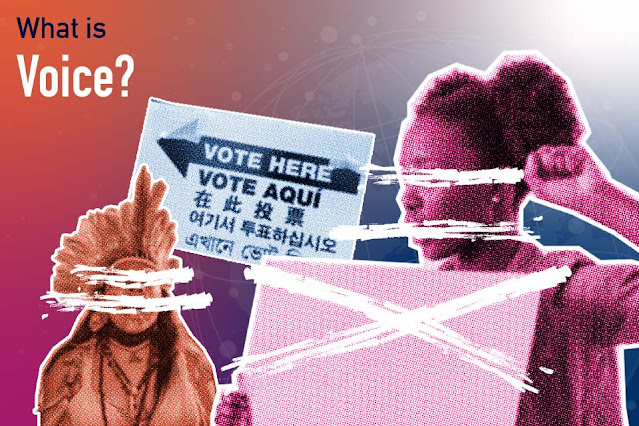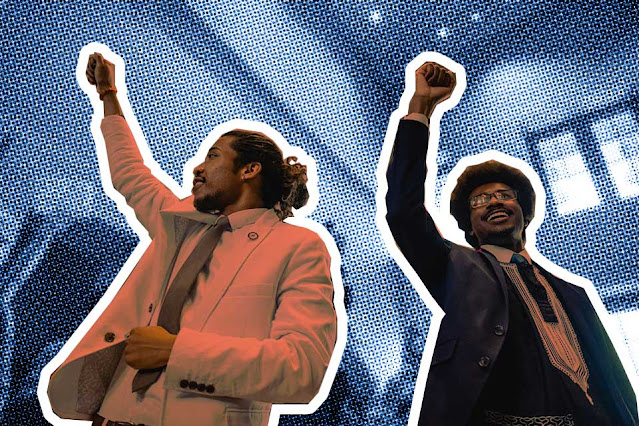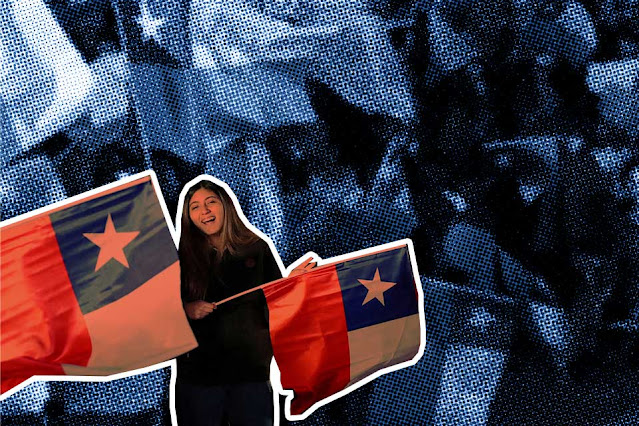(By Roberto Young)
The Talking Politics 2023 theme includes the word “voice.” But what are we talking about when we talk about “voice”? What is “voice,” and what is “a voice”?
“Voices” are everywhere. We speak of the “voice of a generation,” the “voice of a movement,” the “voice of the people.” Get-out-the-vote campaigns (especially in the U.S.) routinely use the slogan, “your vote is your voice.” When people are politically included, they “have a voice.” Advocates and activists often claim to “give a voice to the voiceless” through their/our work. What does this mean?
As should be clear, “voice” has a dual meaning. First, in a physical sense, “voice” can exist as a phonosonic phenomenon that results from the vibrations of vocal cords as air passes through them. It doesn’t need speech sounds, though: it also appears through gestures and signs that can be communicated visually and tactically, through sight and touch, as in sign languages. Second, in a metaphorical sense, “voice” can be used to represent a recognizable social position, whether in terms of an identity, political position, cultural values, system of beliefs, ideas, and more. The idea of having “a voice” is connected to this, but places emphasis on having an identity and exercising one’s agency as an individual or member of a group.
These multiple voices do not all carry the same impact, of course. The saying, “your vote is your voice” gets complicated when we consider the case of the popular vote in the United States, for instance. Votes cast by the general population do not carry the same influence in determining the leader of the country as those cast by a system of vote counting known as the Electoral College. The influence of voices also depends on the communication channels through which they are disseminated. With growing access to the internet, more voices have the potential to reach wider audiences and contribute to citizen journalism, yet new media can also reduce opportunities to interact with opposing perspectives by creating a kind of algorithm-fueled echo chamber.
Voices are potentially infinite. The multiplicity of voices often involves competing claims to “giving voice to the voiceless” and speaking for communities, which often results in the exclusion of the groups supposedly being spoken for.
When we talk about “voice” and “a voice” in political contexts we are often talking about taking action through voting, protesting, organizing, etc. This also extends beyond human-centered definitions, where rivers and mountains talk, too. Broadly, voice and voicing are about how speakers and meaning-makers interpret, describe, engage with, and transform the world around them.
When It Comes To Gun Violence in America, It Matters Who Speaks and How
Content advisory: mentions of gun violence, racism, and state violence
In April 2023, Tennessee lawmakers, Justin Jones and Justin Pearson, were expelled from the Tennessee state legislature for joining a peaceful protest against gun violence after six people were killed in a mass shooting in Nashville. In a speech on the Tennessee House floor, Jones responded to criticism from his Republican colleagues saying, “it is in that spirit of speaking for my constituents and being a representative of the people that I approached [the House floor] last Thursday…exercising moral obedience to my constitutional responsibility to be a voice for my people, to be a voice for the Tennesseans who you choose not to listen to” (italics added).
Voices are varied but some are louder and carry more weight than others. Jones and Pearson were both democratically elected by their respective districts. However, the Republican supermajority in the Tennessee House of Representatives also voted and voiced their opinion about whether two elected state representatives should be removed from their duties. As this example shows, voice and voicing are as much about what is being said as they are about who is saying it.
A third Tennessee lawmaker who joined the same protests was almost expelled as well. When asked why the vote to expel her failed, she responded, “it might have to do with the color of our skin.” While Jones and Pearson would later be reinstated by the Metropolitan Council of Nashville and Shelby County Board of Commissioners, they will need to run again in a special election to be reelected to their seats. After being reinstated, Pearson delivered a speech reaffirming his commitment to supporting “a voice” for the people saying, “a movement is rising. See, they tried to kill democracy. They tried to expel the people’s choice and the people’s vote. And they awakened a sleeping giant.”
Indigenous Voices, Corporate Interests, and Others in Chile’s 2022 Constitution
In September 2022, voters in Chile took to the polls in a referendum on a draft new constitution. Chile’s current constitution was written in 1980 under the dictatorship of Augusto Pinochet. The impetus for this new constitution grew from anti-austerity protests in 2019, and it became the first constitution in the world to be written by an equal number of female and male delegates. For the first time since 1980, Chile’s constitution would include a diverse array of “voices” from various sectors of the populations. The draft constitution would recognize Indigenous peoples in Chile, codify reproductive rights, make higher education free, mandate universal healthcare, require gender equality in the government, and commit the Chilean state to adapt to the climate catastrophe.
However, not all “voices” were included. For instance, clauses that would nationalize Chile’s mining industry were left out of this new constitution. Some “voices” were also amplified more than others because opponents of this new constitution outspent supporters by a ratio of 4:1. Voices from outside Chile tried to influence the outcome of this vote, where the editorial board of the U.S. newspaper, The Washington Post, expressed its disapproval, citing concerns that the new constitution would make it harder for foreign corporations to access Chile’s lithium reserves.
On election day, 38% of voters approved the new constitution and 62% voted against it. The process for writing a new draft of the constitution will now be led by a Congress-appointed Council of Experts, where the draft will be voted on by a Constitutional Council, whose members will be elected by voters in Chile.
Chile’s new constitution exemplifies the ways diverse “voices” inform and influence political processes. The process itself was designed to engage multiple “voices” from various sectors of Chile’s populations as combined into this one document, and the metaphor of the political “voice” was used extensively to talk about what this movement was and how it was unfolding. For these commentators and others, however, questions remain as to whose “voices” have and will be recognized and whether this new constitution will be representative of the “voices” of the 2019 anti-austerity protests that brought it into being.
Further Resources
Advanced + technical texts
Amanda Weidman. 2014. “Anthropology and Voice.” Annual Review of Anthropology.
Mikhail Bakhtin. 1975. The Dialogic Imagination. University of Texas Press. **This book is the main original source of linguistic anthropologists’ approach to the concepts of “voice” and “voicing.” Bakhtin develops these concepts to analyze novels, but as it turns out, the concept is applicable to real-world contexts, too.



Comments
Post a Comment